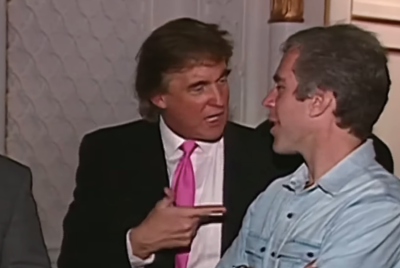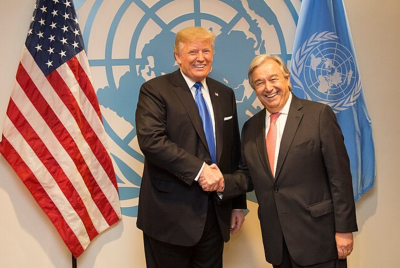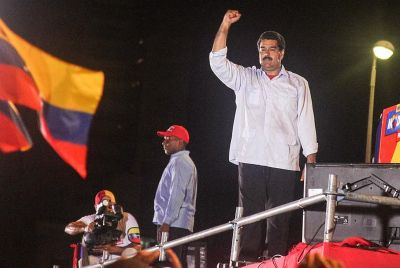White House 'Official' Response On Trump's Quiet Piggy' Statement: Are They In The Right?
The White House defended the remark, claiming Lucey acted unprofessionally and insisting the comment was not sexist

Donald Trump has faced renewed scrutiny after telling Bloomberg correspondent Catherine Lucey to be 'quiet, piggy' during a press gaggle aboard Air Force One on 14 November 2025. The exchange took place as Lucey questioned him about newly released emails connected to financier Jeffrey Epstein. The remark was heard by journalists travelling with the president and quickly reported by national and international media outlets.
Reaction to the incident was immediate, with reporters and commentators arguing that the language was inappropriate and disrespectful for a political figure engaging with the press. Observers also noted that Trump has previously attracted criticism for confrontational exchanges with female journalists during his time in office. The episode has revived wider discussion about standards of political communication and the expectations placed on public leaders when addressing the media.
The White House has defended Trump's conduct and has insisted that the comment was a direct response to what officials described as unprofessional behaviour during the encounter. They stated that the remark was not intended as a sexist insult and that it had been misinterpreted once circulated online. Despite this, the exchange has placed a fresh spotlight on the relationship between the US president and the press, and the boundaries of acceptable language in political settings.
The Exchange in Detail
According to reports, Trump leaned towards Lucey as she spoke and instructed her to be 'quiet, piggy' while pointing in her direction. The moment was captured by reporters present and immediately became a focal point for online discussion. CNN anchor Jake Tapper later described the remark as 'disgusting and completely unacceptable', while other commentators suggested it reflected longstanding tensions between Trump and sections of the media.
Several newspapers and broadcasters noted that the remark was viewed by many as part of a broader pattern of dismissive and personal comments directed at female journalists during Trump's time in public office. The incident has also drawn attention on social media, where critics have questioned whether such language normalises a hostile environment for reporters attempting to carry out their work.
Administration Defends the President
A White House official told MSNOWNews that Lucey's manner had been 'inappropriate and unprofessional', adding, 'If you're going to give it, you have to be able to take it.' The official maintained that the remark was not sexist and that it should be viewed in the context of what they described as a tense and fast-moving press encounter.
The administration has continued to argue that Trump did not overstep his role, although critics have said that the defence risks downplaying the power imbalance between a head of government and a journalist performing their professional duties. Media freedom advocates have also noted that the president has a responsibility to set standards of public engagement, particularly in an era of heightened political polarisation.
After a woman reporter asked about President Trump’s name being raised in emails sent by convicted sex offender Jeffrey Epstein, Trump snaps at her: “Quiet, piggy!”
— Jake Tapper 🦅 (@jaketapper) November 18, 2025
Disgusting and completely unacceptable. https://t.co/5NNaF86aEJ
Highlights from NEWSY gaggle on AF1 on our flight to Florida on Friday night:
— Jennifer Jacobs (@JenniferJJacobs) November 15, 2025
Trump told us on EPSTEIN:
-"I know nothing about that," he said when asked what Epstein meant when he said Trump knew about the girls. "Jeffrey Epstein and I had a very bad relationship for many years."… pic.twitter.com/zRpNTrgkLy
The White House is standing by Trump's calling of a reporter "piggy."
— Vaughn Hillyard (@VaughnHillyard) November 18, 2025
A White House officials tells @MSNOWNews: "This reporter behaved in an inappropriate and unprofessional way towards her colleagues on the plane. If you’re going to give it, you have to be able to take." https://t.co/1uGHJelonk
Broader Press Freedom Concerns
The remark has reignited discussion about how political leaders should address journalists and what such exchanges mean for the free press. Commentators have warned that public insults may contribute to an environment in which female reporters, in particular, face additional pressure or hostility when carrying out standard questioning.
Analysts have also noted the potential reputational risks for political figures who choose personal language in professional settings. The incident underscores the ongoing tension between political authority and media scrutiny in the United States and will remain under examination as the White House continues to defend the president's conduct.
© Copyright IBTimes 2025. All rights reserved.




















